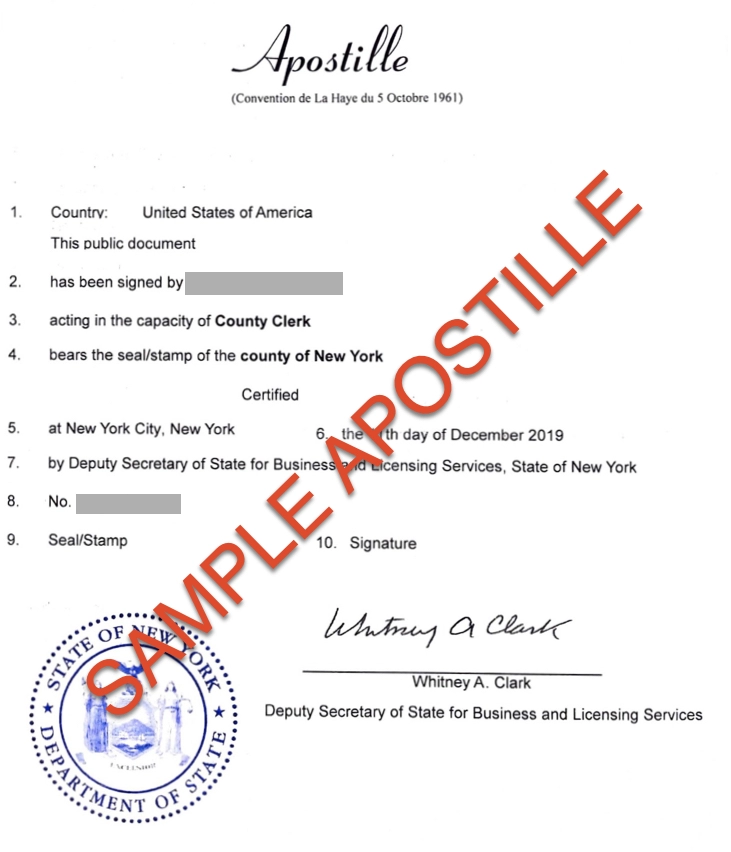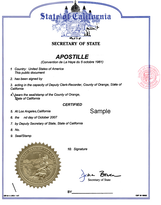Apostille Houston Service-- Certified Document Authentication for All Needs
Apostille Houston Service-- Certified Document Authentication for All Needs
Blog Article
Recognizing the Apostille Process: A Comprehensive Overview to International Record Verification
Browsing the detailed landscape of international file authentication can be discouraging without a clear understanding of the apostille procedure. This overview thoroughly outlines the necessary steps, from identifying which papers call for certification to sending them for verification by the Competent Authority. Understanding the importance of an apostille and recognizing prospective mistakes, such as insufficient submissions and language obstacles, can considerably enhance the authentication trip. What specifically defines an apostille, and why is it so critical for files predestined for Hague Convention countries? These questions create the structure of our expedition right into this crucial legal procedure.
What Is an Apostille?
An apostille is an official qualification that verifies the credibility of a document for usage in one more nation. This accreditation, issued by a designated authority in the country where the file originated, ensures that the document is acknowledged as valid and legit in the international arena. The process of getting an apostille includes a number of steps, including the confirmation of the document's trademarks, seals, and stamps by suitable governmental bodies.
The apostille works as an internationally recognized type of verification, made feasible by the Hague Convention of 1961. This treaty, formally called the Hague Convention Abolishing the Demand of Legalisation for Foreign Public Papers, systematizes the process of paper certification among member countries. The apostille itself is a standardized certificate that includes certain details, such as the issuing authority, the native land, and the date of issuance.
It is very important to note that not all papers are eligible for an apostille. Typically, public records like copyright, marriage licenses, court orders, and educational diplomas get approved for this qualification. Exclusive documents, such as contracts and agreements, might require notarization and additional steps to qualify.
Relevance of Apostille
Recognizing what an apostille is sets the stage for appreciating its significance in global transactions. houston tx apostille. An apostille, essentially a kind of accreditation released by a designated authority, validates the credibility of a paper for use in foreign nations that are signatories to the Hague Apostille Convention. This standard process removes the demand for more legalization by consular offices or consular offices, therefore simplifying worldwide deals
It ensures the trustworthiness and acceptance of crucial files-- such as birth certifications, marital relationship licenses, and instructional diplomas-- across boundaries. For companies, it helps with the smooth conduct of worldwide trade, mergings, and procurements by offering a relied on technique of document verification.
Additionally, an apostille enhances legal security and conformity. Federal governments and institutions can with confidence count on the authenticity of documents bearing an apostille, minimizing the danger of scams and misstatement. Hence, the apostille serves as an important device in advertising worldwide cooperation and trust. Its function in promoting efficient and secure worldwide purchases underscores its learn this here now crucial worth in today's interconnected world.
Records That Call For Apostille
When participating in global transactions or lawful issues, particular records typically require the authentication given by an apostille. This ensures their acknowledgment and acceptance in countries that are notaries to the Hague Apostille Convention. Typically, individual documents such as copyright, marital relationship certificates, and death certificates need an apostille, particularly when they are used for procedures like immigration, marriage abroad, or international probate matters.
Educational papers are an additional category frequently calling for apostilles. Diplomas, transcripts, and scholastic records frequently need this verification for purposes such as going after more education and learning, employment, or specialist licensing in an international nation (houston tx apostille). This step assures that the papers are recognized as genuine and legitimate
Lawful records, including powers of attorney, affidavits, and court orders, additionally generally demand apostilles. Company papers such as certificates of consolidation, bylaws, and commercial contracts may need an apostille to assist in global trade, establish international branches, or involve in cross-border lawful procedures.
Actions to Acquire an Apostille

Obtaining an apostille involves a multi-step procedure that makes sure the credibility and approval of your documents in international countries. The first action is determining which files require an apostille. houston tx apostille. Usual papers include birth certifications, marital relationship licenses, scholastic records, and corporate papers
As soon as determined, the document has to be accredited by the appropriate issuing authority. This may entail registration by a notary public or confirmation by a local or state authorities, depending upon the type of file. After accreditation, the paper should be sent to the assigned Competent Authority in the file's nation of beginning. In the United States, for instance, this is normally the Assistant of State's workplace for every state.
The submission procedure generally calls for a finished application kind, the initial record, and a charge. Some jurisdictions may supply the alternative of expedited processing for an added fee. Upon effective verification, the Competent Authority will certainly attach the apostille certification to the paper, therefore verifying its authenticity.
Typical Obstacles and Solutions
Navigating the apostille process can provide numerous typical difficulties that, if not appropriately resolved, may delay or complicate paper authentication. One regular problem is the submission of inaccurate or insufficient files. Each nation has specific demands for the sorts of files that can be apostilled, and any variance from these can result in rejection. Making certain that all records are accurate and full before entry is essential.
Another common difficulty is recognizing the varied handling times. Handling times can vary significantly in between nations and even in between different regions within the very same country. It is necessary to make up these variations when planning the apostille process to avoid unforeseen hold-ups.
Additionally, language obstacles can pose significant barriers. Files in an international language typically require qualified translations, and any errors in translation can cause additional complications. Engaging an expert translation solution can mitigate this risk.

Conclusion
Understanding the apostille process substantially boosts the effectiveness of international file authentication. By understanding the requirement of identifying and accrediting required documents, and navigating the submission to the Competent Authority, the read review process becomes much more convenient. Recognition of typical difficulties, such as insufficient submissions and language obstacles, further help in preventing possible hold-ups. Guaranteeing files are appropriately apostilled promotes their acceptance in Hague Convention signatory nations, why not try here therefore supporting seamless worldwide lawful and management procedures.
Report this page